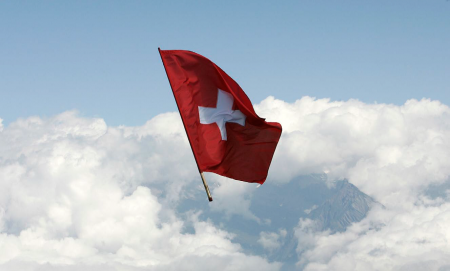
Switzerland and four other states (Costa Rica, Jordan, Liechtenstein and Singapore) called on 28 March 2012 for reform of the UN Security Council. Through an official draft resolution, they made proposals for a more democratic, efficient and transparent mode of operation, namely by making UN Security Council meetings public, and by including conflict-affected and peacekeeping states in decision-making processes. Furthermore, they demanded a restriction of the veto rights of the five permanent members of the Security Council.
These proposals should not be seen in purely altruistic terms. Switzerland’s hidden agenda is its candidature for membership in the Security Council for the period 2023/2024. In this respect, support for a long-standing and much-discussed issue like Security Council reform is a good opportunity for a Swiss promotional campaign.
Switzerland’s strong advocacy for UN Security Council reform is far from the norm, however. On the contrary, only within the past decade did Switzerland even become a UN member.
On 29 March 2012 the University of Zurich held a lecture on Swiss security policy, discussing the reasons behind the paradox of Switzerland’s longstanding distance from the UN, despite its history of participation in the League of Nations before the Second World War and many other UN bodies afterwards. To the surprise of the international community, 75% of the Swiss population voted against their country joining the United Nations in 1986. One reason for this rejection was the view held among center-right circles in the country that the UN, and especially the General Assembly, was controlled by communist countries. Of even greater importance was Switzerland’s position of neutrality, which gained momentum during the Cold War. The experience of the Second World War led Switzerland to identify even more strongly with neutrality, namely through the association of Swiss security with neutrality. This hindered Switzerland from joining political organizations such as the UN, from participating in UN sanctions regimes, and from taking part in any economic union.
The end of the Cold War and fall of the Berlin Wall both hit Switzerland like a thunderbolt. These geopolitical changes led the country to re-evaluate its security strategy. Switzerland’s vulnerability became more apparent and it was realized that security policy should not only focus on the prevention of wars but should increasingly take into account other types of threats.
In 1990 a security report was conducted which led to the proposal of a new strategy, calling for stronger international cooperation, with the goal of a more stable and secure Europe and greater integration.
But these basic changes in Swiss security policy led to a contradiction between integration and neutrality. The rejection of UN membership in 1986 seemed to cast a long shadow. As a result, commitments for a new strategy were only vaguely formulated. Over time, however, Switzerland became more and more involved in international initiatives.
The 1993 report on foreign affairs marked the change to a new strategy through an in-depth discussion of Switzerland’s neutrality policy. Neutrality was restored to its basic principles based upon the Hague Conventions of 1899 and 1907, which codify the obligations of a neutral state. The report concludes that neutrality should not hinder Switzerland in countering new global threats, and that participation in collective sanctions imposed by the international community does not contradict neutrality. The report also declared that there was even room for membership in the EU.
In 2002, the Swiss government decided to make another attempt at UN membership, bringing the issue once more to the voters. This time, a slim majority of 54% of the Swiss population voted in favor.
Since 2002 Swiss involvement in UN activities has become stronger. Five years after the successful referendum, the Swiss Federal Council gave a positive assessment of Switzerland’s activities in the UN. Mostly due to Switzerland’s efforts, the Geneva-based Human Rights Council and the Office of the Ombudsperson on UN sanctions policy has been created. The Geneva-based UN headquarters, second in importance only to New York, has achieved recognition in the international community. Swiss priorities of peace and security, human rights, and sustainable development have been strongly advocated. Today, Switzerland is the 16th largest financial contributor to the UN, contributing 1.13% of the organization’s total budget.
Since 2007 Switzerland has also been an active lobbyist for UN Security Council reform. This is not only related to the Swiss candidature but also arises from concerns over Security Council impasses, as seen by the discussions surrounding the case for intervention in Syria.
In this case, the Swiss paradox still exists: its strong traditions of both humanitarian assistance and neutrality create a dilemma for its security policy. For example, should Switzerland participate in an EU intervention if Security Council approval is lacking? Indeed, Security Council reform might alleviate this dilemma.
The political pressure for such reform is rising. But will this pressure be sufficient?
For further information on the topic, see our keyword UN Security Council Reform or check out the following articles:
Swiss Neutrality: Rhetoric and Relevance
Stalled UN Security Council Reform
The Reform of the UN Security Council

